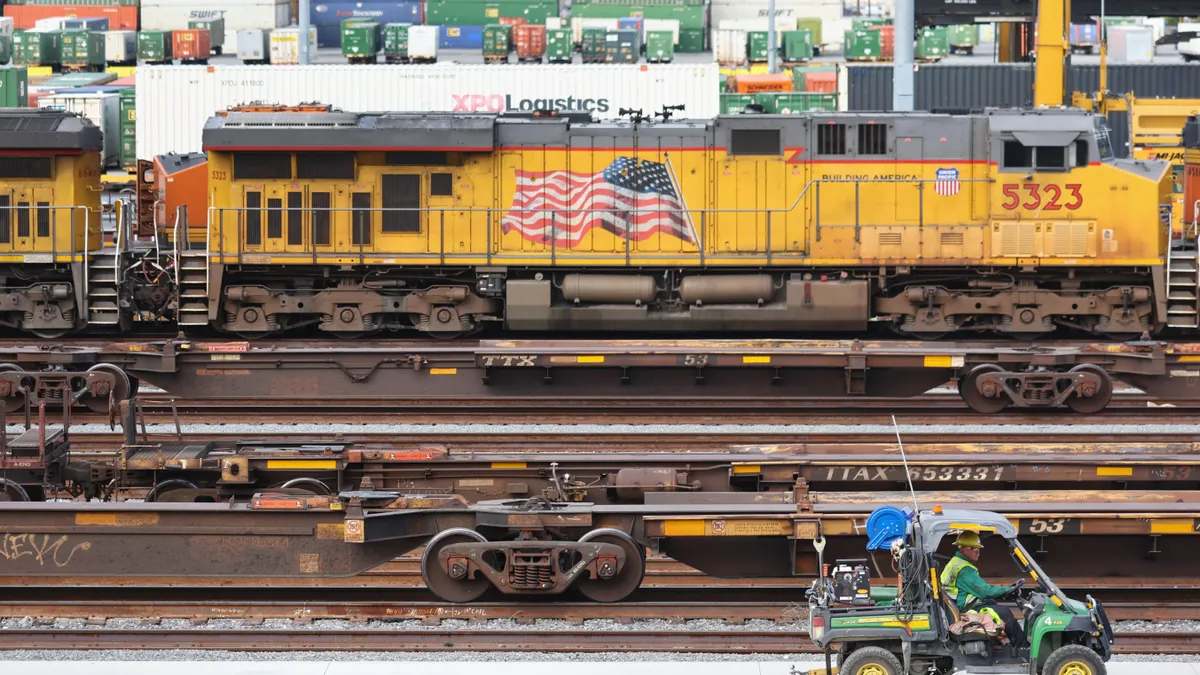President Joe Biden on Friday signed legislation imposing a labor agreement on rail workers, avoiding a national strike or lockout that was expected to cost the economy $2 billion a day.
“A rail shutdown would have devastated our economy,” the president said at a bill signing event. “Without freight rail, many of the U.S. industries would literally shut down.”
Four unions — including the industry’s largest — voted down their contracts over a lack of paid sick leave days, arguing they are unable to receive time off in the case of a cold or flu. The impasse threatened a shutdown of the nation’s rail system, which is responsible for 40% of the nation’s long-distance freight.
Congress moved with rare speed this week to avoid a shutdown by approving a bill that would force four unions representing thousands of workers to accept their rejected labor agreements. A Democrat-led effort to provide workers with paid sick leave failed in the Senate.
Lawmakers have unique authority under the Railway Labor Act to intervene in negotiations — Congress has passed laws to delay or settle a rail strike at least 18 times since 1963. President Joe Biden called on lawmakers to once again flex that political muscle after he was advised that there was no path to resolution at the bargaining table.
Although railroads and workers had until Dec. 9 to reach an agreement, the president wanted legislation on his desk earlier, noting that businesses warned they expected disruptions as soon as this weekend. Biden said Friday that the bill avoids “what, without a doubt, would have been an economic catastrophe at a very bad time in the calendar.”
Shippers hailed the legislation, saying it avoids a devastating blow to the nation’s supply chains that were already struggling to recover from over two years of congestion, shortages and other delays. Over 300 trade associations had urged the Biden administration to take action to avoid a shutdown, saying any rail disruption would have a “significant impact on the U.S. economy and lead to further inflationary pressure.”
Unions, however, blasted the Senate for the failed vote on paid sick leave. While some Republicans — including Sens. Ted Cruz of Texas and Marco Rubio of Florida — signed on to the measure, it wasn’t enough to surpass the 60-vote threshold needed.
“It is extremely disappointing that 43 Senators voted to prioritize the corporate greed of rail carriers and CEOs over the needs and quality-of-life improvements that our members so desperately deserve,” SMART-TD, the largest rail union, said in a statement Thursday. “The ask for sick leave was not out of preference, but rather out of necessity.”
Biden said that he remains committed to granting railroaders with paid sick leave, saying he “wants to continue that fight until we succeed.” The National Carriers’ Conference Committee, which represents railroads in bargaining, said it will also take the issue under consideration in the future.
“We have heard and recognize the deeply felt concerns regarding paid leave benefits and will work with rail union leaders in future bargaining rounds to assess the structure of these provisions,” the NCCC said in a statement.
The contract signed into law on Friday covers the period from 2020-2024, at which point a fresh round of bargaining will begin.
“While we are disappointed, we are not defeated,” Greg Regan and Shari Semelsberger, president and secretary-treasurer of the Transportation Trades Department of the AFL-CIO, said in a joint statement Friday. “We are going to keep this fight moving forward, whether it be through legislation, executive action, or dragging the railroads back to the bargaining table.”















